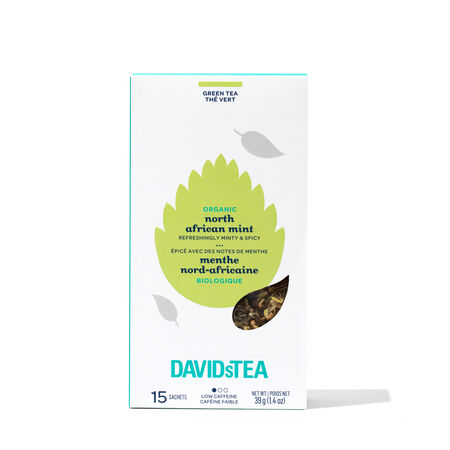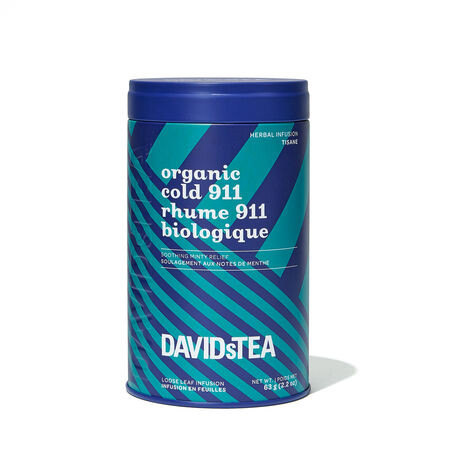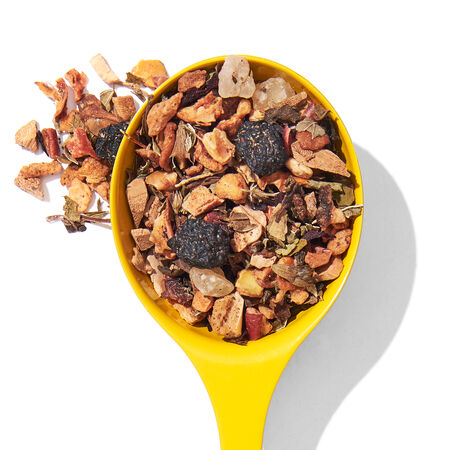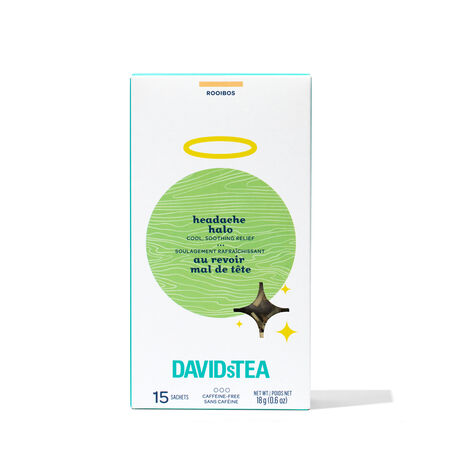‘I’m a Director of Tea, and These Are the 5 Best Teas for When You’re Sick and Want To Feel Better Fast’
However, when those "winter weather snotties" turn into a full-blown cold, having the right remedies to soothe your body back to normalcy is as important as binge-watching the entire second season of White Lotus before social media spoils the finale. Fortunately for us, according to MDs, some symptoms of common colds and (non-dire) ailments can be eased with the help of a few herbal remedies at home, like a cozy cup of ginger tea to ease nausea or indigestion.
We caught up with Nadia De La Vega, DAVIDsTEA’s tea sustainability and content director, who shared some of the best teas for when you’re sick and want to feel better ASAP. Bonus: They’re just as tasty as they are effective.
5 best teas for when you’re sick and want to get better fast
1. Peppermint tea can help calm an upset stomach
According to De La Vega, peppermint tea can help soothe an upset stomach, especially after eating slightly questionable leftovers or a big meal. “Organic North African mint is a warming and spiced roasted green tea blend that’s perfect for helping to ease digestion,” De La Vega says. “Inspired by the traditional pairing of green tea and mint ubiquitous in North Africa, this all-natural tea blend features aromatic botanicals like cardamom, sweet fennel, and ginger that have been used for centuries for their tummy-soothing benefits.”
{{post.sponsorText}}
But it’s not just the tingly cooling effect that instantly soothes your stomach upon the first sip—mint has science-backed properties that help ease a pesky belly ache. "Peppermint tea has 'dyspeptic' benefits, meaning that it can offer relief from nausea, indigestion, and heartburn," functional medicine physician Mahmud Kara, MD, former Cleveland Clinic physician and founder of KaraMD, previously shared with Well+Good.
De La Vega also says it’s worth noting that teas, like green, black, oolong, and pu-erh, can be considered prebiotic because the polyphenols in the tea leaves can contribute to a healthy gut microbiome. “Having a balanced microbiome in the gut supports and strengthens our system. So, in addition to helping with digestion, organic North African mint also supports my overall immunity journey,” De La Vega says. However, it’s important to note that those sensitive to caffeine might want to choose a strictly herbal mint tea (sans green tea), as caffeine can potentially further upset the stomach.
2. Eucalyptus mint tea can help unclog a stuffy nose
Stuffy nose driving you nuts? De La Vega recommends brewing a cup of organic Cold 911 tea with key ingredients like peppermint, eucalyptus, and juniper berries. “I’m a huge believer in the power of plants and their aromatic oils. Eucalyptus, for example, is very high in aromatic oils that give it the distinct clean and woodsy aroma known to help soothe colds, coughs, and promote deep breathing—that’s why it’s featured in everything from cough drops to chest rubs,” she says. Not to mention, eucalyptus is packed with flavonoids, a group of powerful antioxidants that can help protect against chronic illnesses, and antimicrobial properties to help clear congestion.
3. Citrus tea can give your immune system a boost
Whether you’re under the weather already or looking to prevent catching a cold in the first place, getting an extra dose of vitamin C can help give your immune system the boost it needs. In these instances, De La Vega’s go-to is Sunny C tea. “Our citrusy Sunny C, a caffeine-free herbal tea, provides a delicious dose of vitamin C—this lively blend was specifically crafted with ingredients popular for their vitamin C content like orange and carrot,” she says. Plus, there are about 10 milligrams of vitamin C per eight-ounce cup of tea, which De La Vega says will make you feel warm inside and out while supporting your immune system.
4. Adaptogenic teas can help keep your stress levels in check
Research shows that high levels of stress can weaken your immune system and make the body more susceptible to illness, which is why it’s important to keep anxiety levels at bay whenever possible. One way De La Vega combats stress is by sipping on Reishi Relax tea. “As part of our holistic approach to combat stress, we love adding adaptogens to our feel-good journey. Adaptogens are plants, herbs, or fungi that are said to help adapt to stress and bring restorative balance to your life,” she says.
Reishi mushrooms, a popular adaptogenic plant, are believed to stimulate the immune system to prevent infection, can help combat stress, and help keep high blood pressure levels in check. And fear not: This tea has zero mushroomy aftertaste. “Reishi Relax is a caffeine-free herbal blend with a deliciously juicy berry taste. It also includes skin-loving sea buckthorn and balance-restoring schizandra berries,” De La Vega says.
5. Rooibos teas can help mitigate headaches
After staring at the computer for hours on end, you might find yourself with a blaring headache that’s enough to put you in a grouchy mood. If that’s the case, De La Vega suggests their Headache Halo tea. “This heavenly all-natural rooibos blend was developed by our resident ingredient and plant experts and features a combination of soothing willow bark, comforting passionflower, cooling nana mint, and relaxing lavender,” she explains. The result? “A delicate and hydrating infusion designed to help melt away tension and ease the mind—morning, noon, and night,” De La Vega says.
This herbal tea will help calm you for a great night's sleep:
Loading More Posts...




